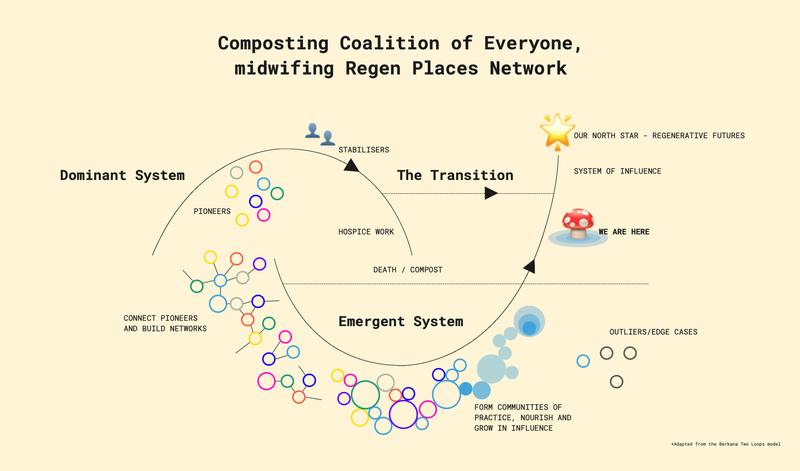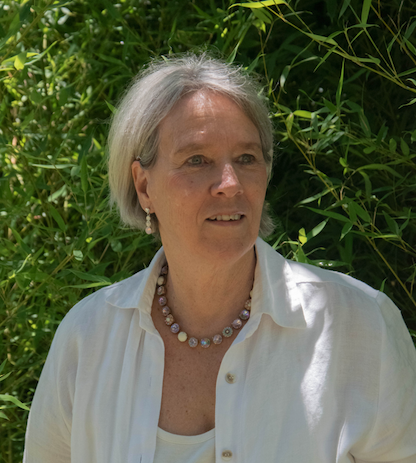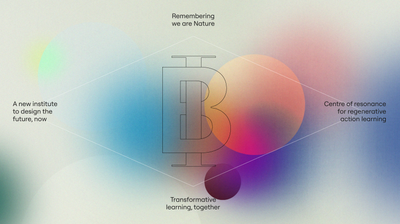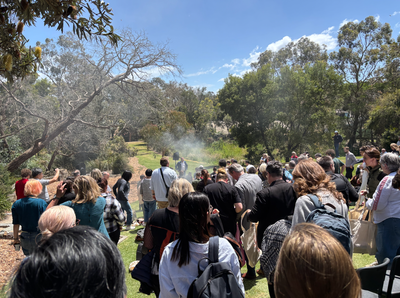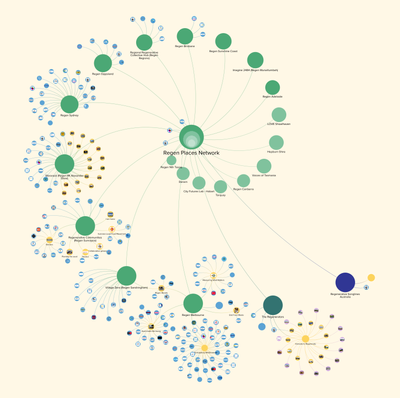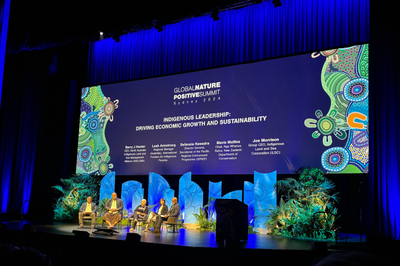Composting Coalition of Everyone, by Willow Berzin
Reflecting on Six Extraordinary Years: The Coalition of Everyone (CoE)
After six extraordinary years, we officially composed the Coalition of Everyone (CoE) at last week's final Annual General Meeting (AGM).
Earlier this year, while walking along the Merri Creek, CoE’s purpose statement emerged organically. In that moment, our role became clear, and it felt as if we were preparing to compost our experiences. As Dr. Kiran Kashyap noted during their final remarks at our AGM, “the challenge and the mission isn’t staying still.” This reflects our approach to design—being nimble, adaptive, iterative, and practicing emergence.
We never aimed to create a long-term strategy and then execute it. Instead, our organisation focused on being together; weaving meaning, listening, sensing, responding, taking action, and learning immensely along the way. Our strategy often revealed itself only in hindsight.
The Coalition of Everyone was a registered charity and a think-and-do tank established to regenerate democracy and democratise regeneration. Collaborating with communities to design and implement decision-making frameworks that included representation from all voices—human and non-human alike, and the future. Believing that by remastering human technologies like collaboration, participation, and deliberation, we can reset human systems in harmony with the living world.
CoE incubated the Regen Places Network, which is now poised for its next journey in demonstrating systemic transformation and evolution through the 12 Story of Place activations across Australia set for 2025, and how we can uncover a new story to create our future, together.
It was around the time of the devastating bushfires in summer 2019/2020 that we recognised the need for social infrastructure to support local leadership in our current context. We initially called this a Decentralised Facilitator Network and prototyped it through Regen Melbourne and Regen Sydney. Unsurprisingly, from this seed, the Regen Places Network emerged and is now entering a new phase of viability and evolution.
Until recently, I had not fully realised that my approach to this work stemmed from creative practice. Through my practice, I have come to understand how reconnecting with living systems allows new ways of being, doing, and knowing to emerge. This exploration occurs at the intersection of ancillary design processes, deep listening practices, experiential bio-cultural action/learning/research, and participatory regenerative development.
There is much more to share than what I've outlined here. We have an artifact from our six years of hosting various assemblies that will help disseminate insights into the commons. But first, I want to express our deepest gratitude to all of you for being part of CoE's journey.
Acknowledgments
In particular, I want to thank:
- Pru Gell for teaching us deep democracy during the early days of COVID.
- Professor Yin Paradies for their ongoing patience and generosity in decolonisation.
- Susan Porter for her spirited drive in delivering events.
- Adam Jacoby, my early mentor whose invitation sparked this journey.
- Bianca Anderson for introducing us to regenerative practice and living systems.
- Deborah Tien for her passion for participatory governance.
- Dr. Kimberley Crofts for her exceptional sensemaking abilities in a complex world.
- Dr. Kiran Kashyap for their expertise in transition co-design and Earth democracy.
- Dr. Sonia Randhawa for being the best democracy nerd I know and a steadfast ally.
- Stephanie Ziersch for her relentless commitment to good governance and sustainable communities.
- Selar Henderson for guiding the shift from CoE 1.0 to 2.0.
- Paula Kensington for her passion for reimagining value.
- Reggie Luedtke for inspiring visions of Earth Equity.
And to all the countless friends, allies, partners, collaborators, and teachers we've met along the way—thank you! It has been a privilege to learn openly and grow alongside you all.
None of this would have been possible without you wonderful humans—your bright spirits, passion, and commitment have helped us step boldly into the unknown where love meets hope and courage, and towards the potential that exists inside us, as we learn how to be walking together towards regenerative futures.
Final Reflections from CoE AGM
As we concluded our AGM last week, we asked ourselves: What will we take from our shared experiences with CoE back into the world?
Dr. Kiran Kashyap reflected:
"We went through so many iterations with different forms of assemblies on regeneration and participatory democracy. All these evolutions remind me to keep hearts and networks open—to grow internally as whole persons. It became about emergence—iterating with open hearts and co-evolving."
Stephanie Ziersch added:
"Communities are essential for scaling action during this transition. The answer lies right in front of us; institutions are trying to figure out how—this is 'the how.' Community is an underutilised resource; new ways of relating lie within it."
Paula Kensington shared:
"Becoming a director of CoE expanded my understanding of regeneration. My current work with Selar at Future Value stems from my introduction through CoE, and we are on a new and exciting journey thanks to this."
Dr. Sonia Randhawa noted:
"The optimism isn’t just about moving toward a regenerative future; everything ties into that. My previous career focused on rights; now I emphasise community connections that foster resilience against division."
Dr. Kimberley Crofts remarked:
"Cadence is key. Coming from a fast-paced consulting background, my journey with CoE taught me to slow down—to move at the speed of trust."
Selar Henderson stated:
"There’s nothing new in the world; recognising renewal is necessary while allowing it to occur collectively."
Willow Berzin concluded:
"CoE has been a process of becoming; it has reached its potential through midwifing the Regen Places Network. It has served it’s purpose. After six years of discovery—both organisationally and personally—I’ve learned the very act of showing up is the work. It’s no wonder we have had to operate outside of business as usual, as a mostly unfunded and likely misunderstood organisation driving change from the bottom up, it was a creative expression of many people who came together around an enormous idea.
It has been liberatory and equally extremely challenging; blood, sweat, tears, the struggle, the juggle has all been worth it. It called for deep enquiry into the obstacles that exist in the system, the barriers to systemic funding, the barriers to transformative change. To understand them, the underlying drivers behind our systemic crises, and so that we can transform and evolve these systems. It continues to call for a lot of shedding of old and inherited unhealthy and toxic patterns, that don’t serve people or place. An ongoing unlearning of outmoded ways of knowing and doing. To be now in this moment poignantly and gratefully letting a huge too big to succeed idea go, and to be composting CoE back into the world, feeling somehow more myself, somehow more human. I’ve been re/learning that I belong ‘here’ in Naarm. The work is here, where we are, right here, right now, with you, me and us."
Where to from here?
In this moment between composting CoE and nurturing the Regen Places Network, alongside bringing the Bioregional Institute into being for the work that lies ahead - here's to more being, than doing for the journey ahead 🙌
Willow

